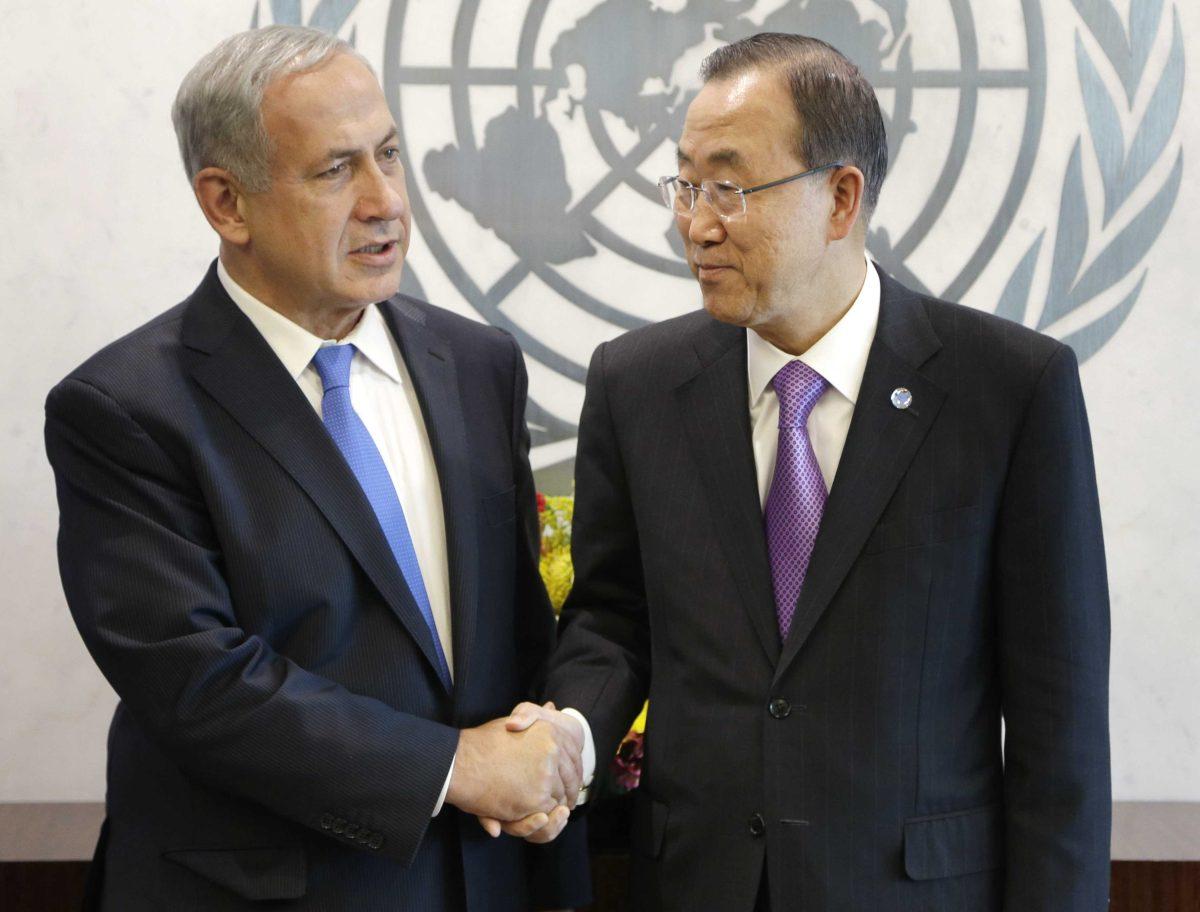Before the whole government shutdown debacle, the United States and Iran made history with the first heads of state communication between the powers. But this thawing of tension between these two countries was interrupted by the controversial Prime Minister of Israel, Benjamin Netanyahu.
While the new Iranian President Hassan Rouhani called for diplomacy, negotiations and managing differences with the United States, Netanyahu called Rouhani a “wolf in sheep’s clothing”.
This third party of controversy might compromise our chance for peace with Iran, the biggest percieved adversary in our lifetimes.
Netanyahu went on a media campaign to contaminate the beginning of what appeared to be a détente between the United States and Iran. His most controversial stop was at BBC Persian T.V., where he tried to make an appeal directly to the Iranian people.
BBC Persian is available in Iran, regardless if the Iranian government approves of it or not, and Netanyahu took advantage of the outlet. During his interview, Netanyahu called out to the Iranian youths and argued that they should prevent their government from getting a nuclear weapon.
In the interview, Netanyahu criticized the view that the Iranian people are free, claiming if they were free, they would wear jeans, listen to Western music and have free elections. He then claimed that he was touched by the death of Neda Agha-Soltan during the 2009 election protests, an event that was used as a symbol of government opposition at the time.
After the interview, Iranians took to Twitter to condemn Netanyahu with photos of people with jeans showing their iPads with Western music on it. One Tweet poked fun at Netanyahu pointing out that if he really watched the video of Neda’s death, he would have noticed that she was wearing jeans.
With the failed BBC Persian campaign aside, Netanyahu has accused Iran of seeking nuclear weapons and lying about nuclear power. He stated several questions at the U.N. for those who don’t think Iran is seeking a nuke. One such question was why would Iran, which has vast energy reserves, want to seek nuclear power?
I have an answer. Iran wants nuclear power for the same reason the oil rich countries of Russia, Canada and the United States wanted nuclear power years ago — for surplus energy. Iran has to use a large amount of its oil to meet its own energy demand for 75 million people, which is more than twice as large as Canada. If Iran’s energy needs can be met by nuclear power, then Iran’s net exports and government revenues would increase, which would help Iran’s economy and create jobs.
Some neoconservatives in the United States, who are hawkish toward Iran, claim that the United States has abundant oil and natural gas so they support more drilling and fracking, yet they ignore that 20 percent of the U.S. energy needs are met by nuclear power.
They never draw the connection to how ironic that is.
Netanyahu then uses Rouhani’s speech from 2005, stating when a country achieves the enrichment level of 3.5 percent, they are not far from being able to produce nuclear weapons. The problem with citing Rouhani is that this fact is common knowledge in the nuclear community and is the same for all countries in the world with nuclear power; from Japan, to Egypt and Brazil, but he chose to pick on Iran.
Criticism of Iran’s nuclear program coming from Netanyahu is ironic, because Israel is the only country in the Middle East that has nuclear weapons and an ability to wipe Iran off the map. Israel has used white phosphorus on Palestinians and has continued to build illegal settlements on land owned by Palestinians.
Iran has taken a step forward and has reached out for negotiations with the United States. Instead of supporting the chance for peace, Netanyahu takes the radical route and insults Iran’s intelligent people with his jean gaffe. If Netanyahu wants peace for Israel, he shouldn’t be condescending to the Iranian people he claims he wants peace with.
Joshua Hajiakbarifini is a 24-year-old political science and economics senior from Baton Rouge.
Opinion: Netanyahu Ruining Peace between countries
October 7, 2013
Israeli Prime Minister Benjamin Netanyahu, left, shakes hands with United Nations Secretary-General Ban Ki-moon during the 68th session of the General Assembly at U.N. headquarters, Tuesday, Oct. 1, 2013. (AP Photo/Seth Wenig)





